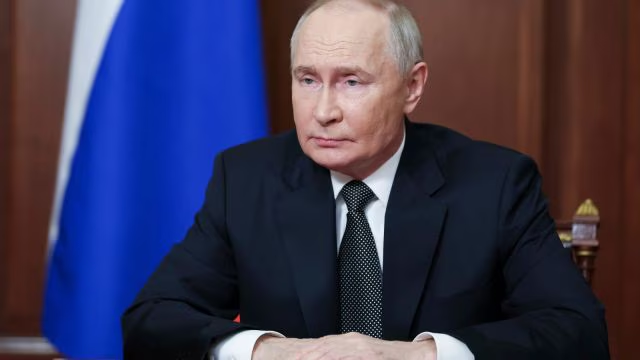In a landmark announcement, Russian President Vladimir Putin revealed that Russia, alongside its BRICS partners Brazil, India, China, and South Africa—has committed to creating a global artificial intelligence (AI) alliance. The initiative aims to propel technological cooperation among these nations, focusing on leveraging AI for economic development and addressing ethical challenges associated with its usage. This partnership reflects the bloc’s growing ambition to establish a multipolar technological order.
Strengthening BRICS Collaboration
The alliance will prioritize AI research, development, and deployment, with Russia and China taking leading roles in AI infrastructure and innovation. India, already an IT powerhouse, is expected to play a crucial role in providing advanced software development and ethical AI frameworks. Brazil and South Africa, too, bring their unique resources and expertise to the table.
Putin emphasized the alliance’s objective of reducing dependency on Western tech and fostering homegrown innovation within BRICS nations. This move aligns with their broader strategy to enhance global competitiveness and redefine global standards in AI technology.
A Push Toward Ethical AI
One of the alliance’s key goals is to develop ethical AI frameworks that respect data sovereignty and individual privacy. Putin highlighted the importance of responsible AI development, particularly in sensitive fields like healthcare, governance, and national security.
BRICS nations plan to establish joint research facilities, share AI datasets, and create an ecosystem that encourages the adoption of AI-driven solutions across industries. Training and workforce development will also be prioritized to ensure a steady pipeline of AI talent within these countries.
Balancing the Global AI Landscape
As AI continues to shape global geopolitics, the BRICS AI alliance represents a strategic move to challenge the dominance of Western tech giants. While countries like the U.S. lead in AI patents and investment, the BRICS bloc aims to bridge this gap through collaboration and shared resources.
China’s rapid advancements in AI, coupled with India’s burgeoning startup ecosystem, provide a strong foundation for this initiative. By pooling resources, the alliance seeks to create not just competitive technologies but also alternative AI governance models to those proposed by Western nations.
Addressing Challenges
While the initiative holds promise, challenges remain. Differences in regulatory environments, technological readiness, and geopolitical tensions among BRICS members could potentially hinder seamless collaboration. However, the alliance has reiterated its commitment to fostering mutual trust and resolving conflicts amicably.
Experts also point out the importance of ensuring that AI solutions developed within the bloc align with global standards to avoid issues of interoperability and acceptance in international markets.
Global Reactions
The announcement has sparked varied reactions worldwide. Supporters of a multipolar world order view the BRICS AI alliance as a positive step toward balancing global tech power. Critics, however, argue that the initiative could deepen divides between global tech ecosystems.
Western tech players are closely watching this development, with some expressing concerns over the potential misuse of AI for surveillance and authoritarian control within certain member nations.
Future Prospects
The BRICS AI alliance is expected to play a significant role in shaping the global AI landscape. By combining their unique strengths, BRICS nations aim to foster innovation that benefits not only their economies but also the global community.
As the alliance progresses, its success will depend on effective collaboration, transparent communication, and a shared vision for ethical AI development. For now, the announcement marks a bold step toward redefining global technological leadership.



